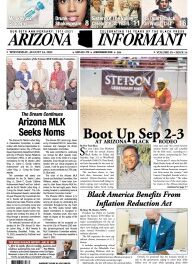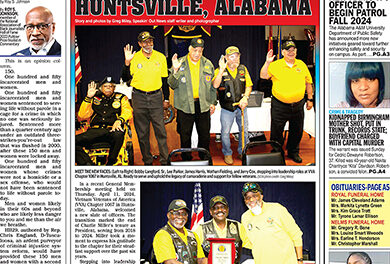A National Science Foundation grant seeks to address HBCUs’ research capacity needs by providing access to advanced facilities, resources, and training. (Adobe Stock)
” data-medium-file=”https://www.birminghamtimes.com/wp-content/uploads/2024/10/AdobeStock_403191370-300×200.jpeg” data-large-file=”https://www.birminghamtimes.com/wp-content/uploads/2024/10/AdobeStock_403191370-1024×682.jpeg” tabindex=”0″ role=”button” />
Miles College
The National Science Foundation (NSF) recently awarded $3 million to be dispersed among multiple HBCUs (Historically Black Colleges and Universities) to support The HBCU Ujima Collective, a groundbreaking initiative led by Miles College to enhance research capacity across five Historically Black Colleges and Universities (HBCUs).
Miles College, serving as the lead institution, will coordinate efforts with Howard University, Morgan State University, Tennessee State University, and Winston-Salem State University to build a robust research infrastructure and foster innovation.
The HBCU Ujima Collective aims to provide student researchers, faculty, and emerging grant professionals with the skills necessary to enhance research capacity and secure future funding opportunities. The grant will be used for student stipends and scholarships, faculty development funds, and consortium activities to foster collaboration and innovation.
“This project is a collaborative success story,” said President Bobbie Knight of Miles College. “By working with these accomplished Co-PIs, we’re elevating Miles College and the entire HBCU community. Miles College, an emerging research institution, is proud to partner with prestigious institutions, including HBCUs, approaching the coveted R1 status.”
“It is an honor to work with each of the co-principal investigators on this project who all bring significant expertise and previous NSF recognition, which strengthens our ability to make a lasting impact on research and innovation,” said the Principal Investigator, Dr. Jarralynne Agee, Senior Vice President of Strategic Initiatives at Miles College, who will lead this collaborative effort.
Agee will work closely with a distinguished team of Co-Principal Investigators, including Dr. Kimberley Freeman, Professor of Educational Psychology at Howard University, Dr. Damon Bryant, Assistant Professor of Psychology at Morgan State University, Dr. Catherine Armwood-Gordon, Associate Dean of Research and Graduate Studies at Tennessee State University and Dr. Rashunda Stitt, Associate Professor of Psychology at Winston-Salem State University.
The NSF grant, awarded through the Advancing Research Capacity at HBCUs through Exploration and Innovation (ARC-HBCU) initiative, seeks to address HBCUs’ research capacity needs by providing access to advanced facilities, resources, and training. The project will support student researchers, faculty development, and research training across multiple states, including Alabama, Maryland, Tennessee, North Carolina, and Washington, D.C.
NSF Director Sethuraman Panchanathan emphasized the importance of this collective effort, stating, “The NSF ARC-HBCU Ideas Lab is an excellent opportunity to foster collaboration among HBCUs. By connecting talent from different institutions, we can build a more integrated and impactful research network that addresses the most pressing needs of these colleges.”
The grant is funded by the Historically Black Colleges and Universities – Excellence in Research (HBCU-EiR) program, which was established in response to the direction provided in the Senate Commerce and Justice, Science and Related Agencies Appropriations Subcommittee Report (Senate Report 115-139). It is built on prior and continuing efforts by the National Science Foundation (NSF) to strengthen research capacity at Historically Black Colleges and Universities (HBCUs).
The grant’s performance period began mid-September, and one of its key components is the development of a series of masterclasses — starting with a grant-writing workshop in November — to equip HBCU faculty, students, and staff with the skills necessary to secure research funding and expand their research capabilities.
Students, including lifelong adult learners, who are interested in these opportunities are encouraged to apply. Open registration for Term 2 of the Fall 2024 semester is still available, and prospective students can learn more by visiting www.miles.edu.











